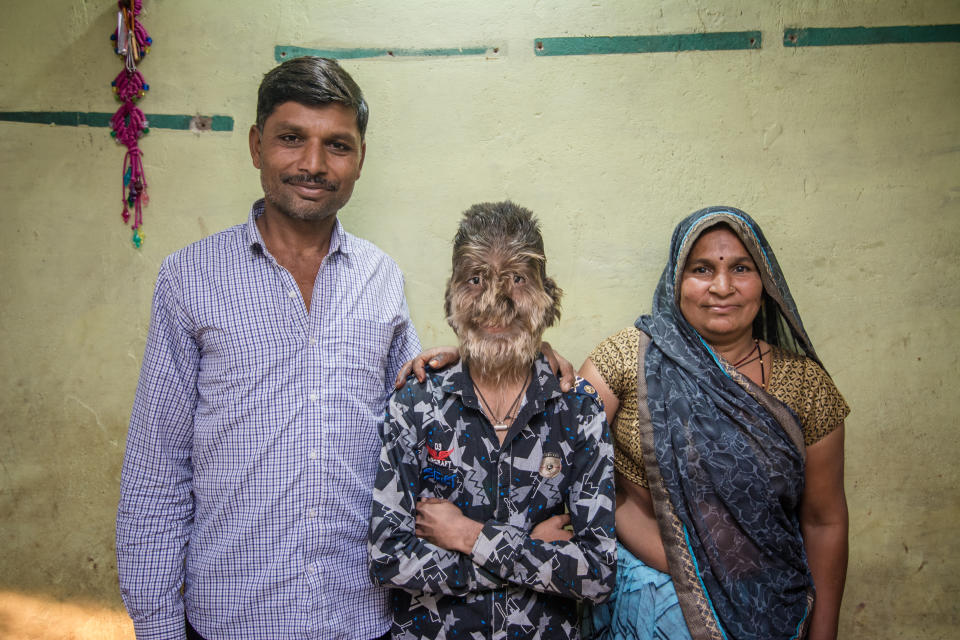Werewolf syndrome: Babies in Spain develop rare disease after taking contaminated medicine
More than a dozen babies in Spain have been diagnosed with a rare condition after taking contaminated medicine, according to Spanish newspaper El País.
The nation's Ministry of Health confirmed that the medicine, which had somehow gotten mixed with an anti-baldness product, had resulted in at least 16 babies developing hypertrichosis — often referred to as "werewolf syndrome."
Hypertrichosis is a rare condition marked by excessive amounts of hair growth, which can develop in patches on the body. In extreme cases, individuals can develop massive amounts of hair over their face.

Above: Lalit Patidar, a 13-year-old boy with a genetic form of hypertrichosis.
"Werewolf syndrome" is generally considered a genetic condition, but in these recent cases, it was seemingly caused by minoxidil, a medicine often used to treat male pattern baldness. The cause of the contamination is unknown, but minoxidil seems to have somehow gotten mixed in with omeprazole, an indigestion medicine each of the babies had been taking.
Some of the parents told Spain's Global News 10 that they first noticed an "appearance of hair in the babies, especially in the facial area," which led many of them to bring their children to a doctor. Authorities soon realized the phenomenon was a widespread issue.
The Spanish Agency for Medicines and Health Products recalled several batches of potentially tainted medicine from the market, hoping to find the source of the contamination. For now, the department is advising any parents who have recently given their child omeprazole to speak with a doctor.
As for the infected children, El País reports that the condition subsided once they stopped taking the medicine. None of the babies have shown signs that they'll be affected long-term.
Those who develop "werewolf syndrome" from other means are typically less lucky. Essentially all known treatment options are related to hair removal through shaving, chemicals or other methods.
The condition is not painful, but it can result in some everyday complications. Lalit Patidar, a teenage boy diagnosed with hypertrichosis condition at birth, told the Daily Mail earlier this year that his appearance had led strangers to throw stones at him and call him a "monkey."
Overall though, the Patidar said he'd come to terms with his condition.
"Sometimes I wish I was like other children, but I cannot do much about it," he told the Daily Mail. "I have gotten used to the way I am, and I am usually comfortable with myself."


